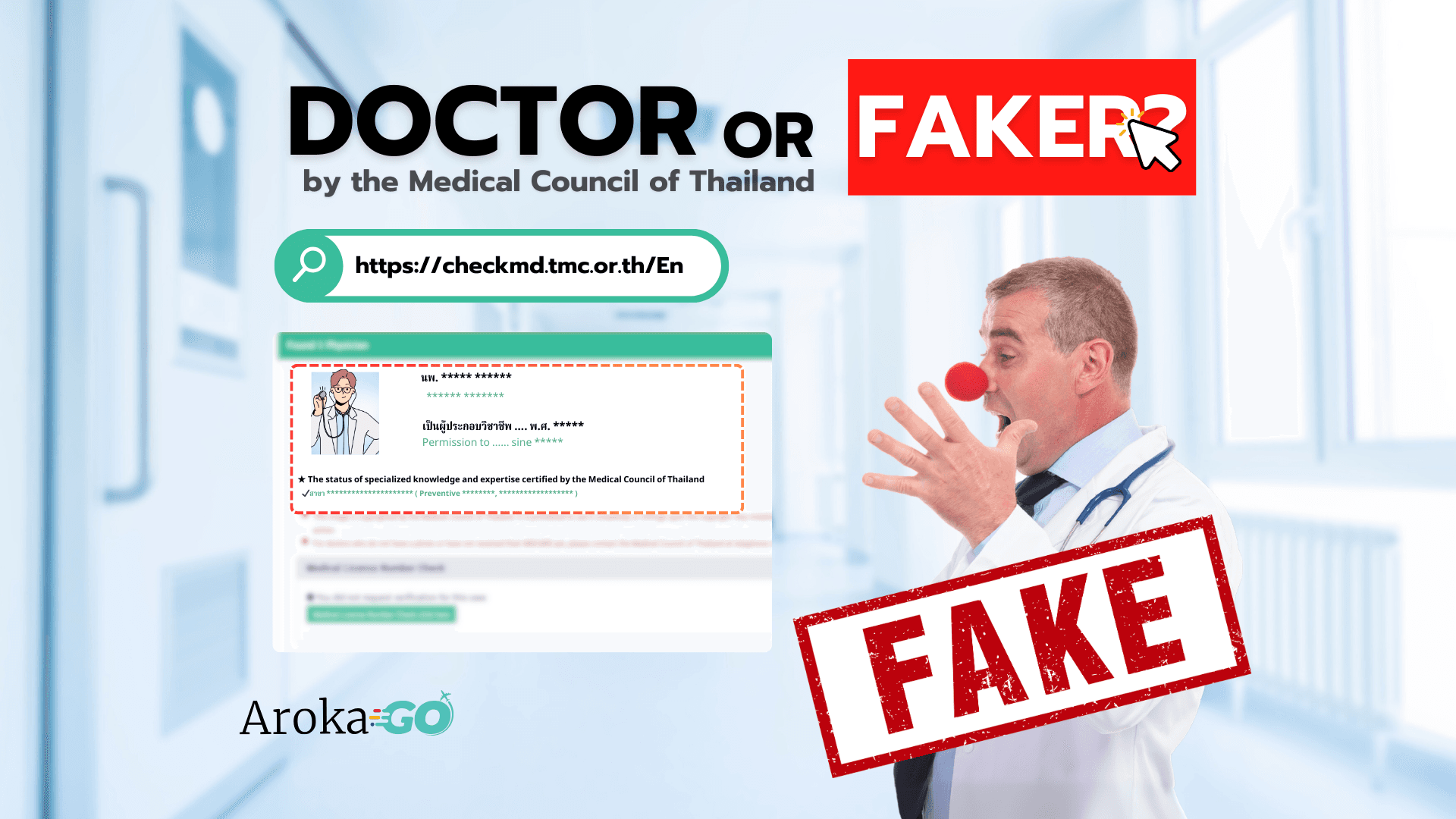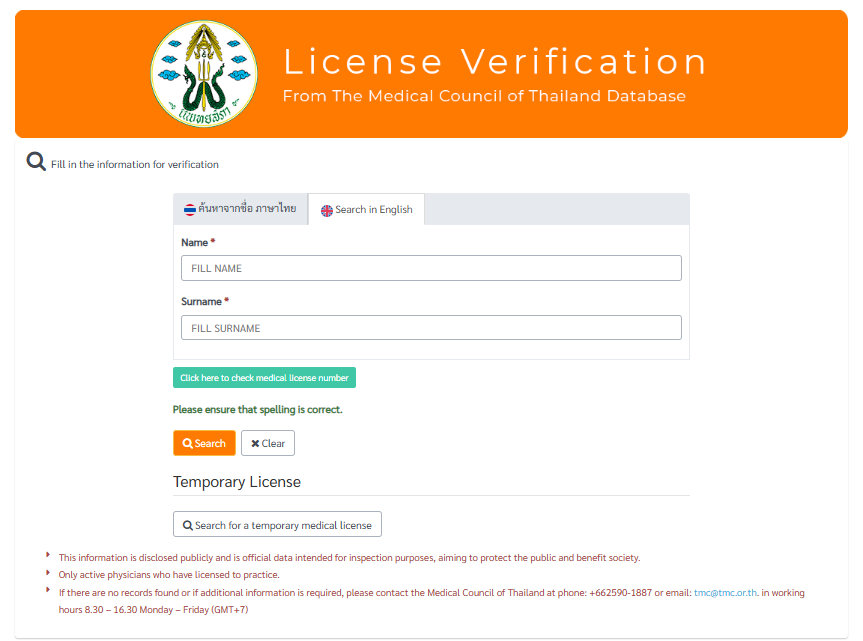How Expats and Medical Tourists Can Verify a Doctor's Legitimacy in Thailand

Thailand is a top destination for medical tourism, offering high-quality healthcare at affordable prices. However, ensuring that you are consulting with a legitimate, licensed doctor is crucial. Fake medical certificates and unlicensed practitioners pose a risk to patients, so knowing how to verify a doctor's credentials is essential. Here’s how you can check if a doctor in Thailand is real or fake.
License Verification from the Medical Council of Thailand
The Medical Council of Thailand provides an easy way to verify doctors’ credentials. Every licensed medical professional in Thailand must be registered with the Medical Council and possess a valid medical license number.
How to Check a Doctor’s License
Usually, you can see doctors' photos along with their medical license numbers displayed in hospitals and clinics, either in their rooms or on the clinic walls. Sometimes, these details are also available on the clinic or hospital's website.
If you receive a medical certificate, medical opinion, or treatment from a doctor and want to verify their credentials, follow these steps:
1. Visit the Medical Council’s official website:
https://checkmd.tmc.or.th/En
2. Enter the required information:
- Doctor’s First Name
- Doctor’s Last Name
- Medical License Number (if available)
3. Check the Results:
- If the details are correct, you will receive confirmation from the Medical Council that the doctor is licensed.
- If the doctor’s name or license number is not found, the certificate might be fake.
- If a license number does not match the name, it is a red flag indicating potential fraud.
The Risk of Fake Medical Certificates
According to the Secretary-General of the Medical Council, issuing false medical certificates is illegal. There have been cases of medical certificate forgery, sometimes without the doctor’s knowledge. If you receive a medical certificate:
- Keep the original document as evidence.
- Verify the doctor's details through the Medical Council database.
- Be cautious of certificates issued by unregistered clinics or unauthorized individuals.
Understanding the Verification System
The Medical Council’s verification system provides important information, including:
- Doctor’s License Status – Whether they are currently licensed to practice.
- Specialty and Certification – The specific areas in which they are trained and certified.
- Suspended or Revoked Licenses – If the doctor has faced disciplinary action or suspension.
- Doctor’s Status – Whether the doctor is alive and actively practicing.
Name Changes and Updates in the System
If a doctor legally changes their name, they must notify the Medical Council. The system will update their details accordingly. If the system has not been updated, it could lead to misunderstandings and suspicions of a fake identity.
What to Do If You Suspect a Fake Doctor
- Do not accept treatment from unverified practitioners.
- Report suspicious medical certificates or practitioners to the Medical Council.
- Verify before undergoing any medical procedures.
For expats and medical tourists, Thailand offers excellent healthcare services, but verifying a doctor’s legitimacy is a must to ensure safe and legal medical treatment. Always use the Medical Council of Thailand’s online database to confirm a doctor’s credentials before proceeding with any medical services.
By taking these precautions, you can confidently receive medical care in Thailand while avoiding fraudulent practices and unauthorized medical providers.
Share this article
More Articles
Discover more insights on health care and medical tourism.

Best Ways To Prevent Contact Lens Infections?
The most important thing in contact lens care is cleanliness which is not only the contact lens but also a contact lens storage case. Here are two important steps to contact lens care.

EBOO Therapy in the 21st Century: Restoring Health in a Toxic World
EBOO (Extracorporeal Blood Oxygenation and Ozonation) is a medical innovation that uses a blood filtration system combined with oxygen and ozone infusion. This process removes toxins, heavy metals and harmful by-products from the bloodstream while simultaneously increasing oxygen levels, improving circulation and supporting vital organ function.

Is cycling really effective in treating osteoarthritis of the knee? Discover the techniques for strengthening your knees through cycling without surgery.
For those experiencing knee pain or suffering from osteoarthritis, physical movement can often be daunting. Many choose to stop moving for fear of further knee damage, but in reality, inactivity leads to muscle atrophy and knee stiffness. One of the most commonly recommended methods by doctors and physical therapists worldwide is cycling to treat osteoarthritis. But the question is, how can one cycle effectively for rehabilitation without worsening the joint condition? This article provides the answer.
